'Not just politics': The 2020 campaign is dividing neighbors in Houston's booming suburbs
HOUSTON — This summer, Whitney Hanzik got a startling notification on her phone. There'd been a stabbing near her home, and one person was injured. Then she looked outside and noticed a helicopter flying over her suburban Houston neighborhood.
Hanzik, a 35-year-old mom who home-schools her three children, wanted to know whether a dangerous person was on the loose. So she logged on to the Prestonwood Forest Neighbors & Friends Facebook group.
"Can anyone verify or does anyone have any further details?" she posted, along with a picture of the crime alert.
Hanzik, who'd grown up in Prestonwood Forest and moved back as an adult, didn't expect the firestorm that followed.
One longtime resident, an older white woman, complained that it was yet more evidence that the area surrounding Prestonwood, a subdivision developed in the 1970s, was turning into "the 'hood," according to several residents who read the now-deleted comment.
That triggered accusations of racism from some residents, including a Black couple who said they never truly felt at home in the mostly white but slowly diversifying neighborhood. Those posts were followed by several from white residents who said they couldn't understand why people were making it about race.
Fifty-three comments later, Hanzik scrolled through the replies, stunned.
"I just wanted to know what was going on," she said of the stabbing, which turned out to be tied to a domestic dispute at a nearby apartment complex. "I've got three kids at home by myself. I just want to know that the area is secure, right? And then when somebody made one comment, everything took a turn for the worst."
But it wasn't the first time this year — or the last — that Prestonwood Forest's community Facebook group has unraveled into a heated argument over crime, politics and race. And the incident was by no means unique to this one Texas subdivision.
Similar feuds have blown up in suburban communities across the country in recent months, fueled in part by changing demographics, the nation's ongoing reckoning over racial injustice, an unusually contentious election season and Republican leaders who've been stoking unsubstantiated fears about growing lawlessness in the suburbs.
For more of NBC News' in-depth reporting, download the NBC News app
In Texas and across the country, Democrats are spending tens of millions of dollars trying to win votes in neighborhoods like Prestonwood Forest — once solidly Republican suburban communities that have trended somewhat more Democratic since President Donald Trump's victory in 2016.
In response, Trump and other Republican leaders have made a direct appeal to the fears of some white suburban residents, claiming without evidence that former Vice President Joe Biden and other Democrats are seeking to "abolish the suburbs." Last month, before Trump's coronavirus diagnosis upended the presidential race, his campaign sent a text message warning millions of supporters that members of antifa, a far-left protest movement, would "attack your homes" if Biden is elected.
Texas GOP Chairman Allen West, a former Florida congressman, confirmed in an interview that fears about crime are central to his party's strategy in the fast-growing suburbs around Houston, Dallas, Austin and San Antonio. West, who is Black, said promises by some Democrats to cut police funding are driving record numbers of "suburban white women" to buy guns, which he said bodes well for Republicans. (When asked for evidence to support the claim, a Texas GOP spokesman sent articles from 2017 and 2018, published well before the phrase "defund the police" was popularized this summer, showing that more women of all races and more Black people in particular had been applying for concealed handgun permits.)
"I believe that when you make the comparison and you look at what I call the rule of law versus the rule of the mob, folks are paying attention to that," West said. "And so I believe that right now, the left, sure, they're putting a lot of money in here. But that's not going to make people vote for a message that is detrimental to the future of the great state of Texas."
But in interviews with several Prestonwood Forest residents, none listed crime and safety as their top concern. These voters said they were more worried about health care, the economy and the fight over confirming a new Supreme Court justice.
Elizabeth Simas, a political science professor at the University of Houston who lives in the same congressional district as Prestonwood Forest, said Trump's remarks about Democrats' wanting to "destroy suburbia" amount to "very thinly veiled racism, quite frankly."
"He's making a very, very clear racial appeal," said Simas, who is white. "I mean, he's talking about suburbs in probably the most stereotypical, 1950s, 1960s sense of white, cookie-cutter homes with a bunch of stay-at-home moms in their nice dresses and aprons that have dinner and a cocktail waiting for their husbands to get home. And it's just not the case. They're very diverse communities."
That's especially true, Simas said, in the booming communities surrounding Houston, one of the fastest-growing and most diverse regions in the country.
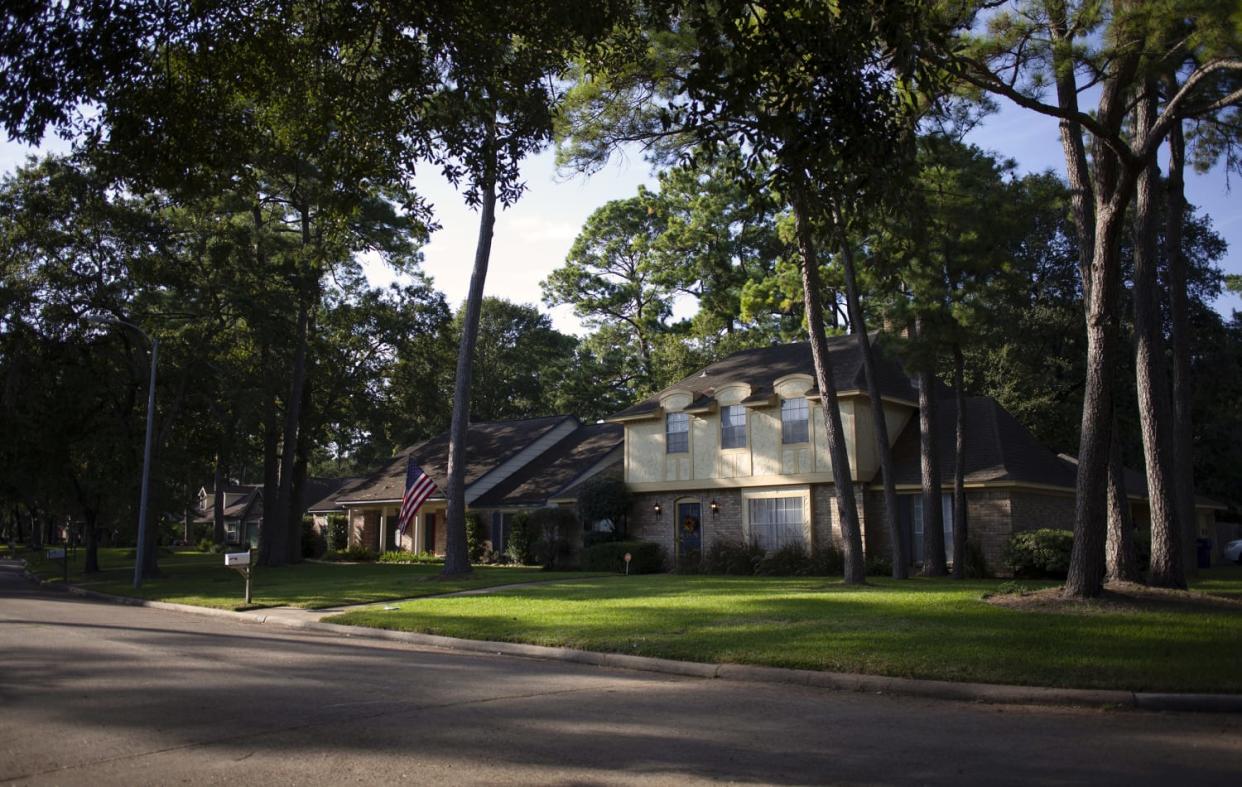
'A great place to raise a family'
A 1974 flier advertised Prestonwood Forest as a "highly restricted" neighborhood with an Olympic-size pool and its own "Night Watch patrol." Located 25 miles northwest of downtown Houston, the new subdivision of sturdy brick homes on large wooded lots offered residents a "country atmosphere" close to the city.
Everything still seemed new when Tom Swisher moved in with his wife and two young children in the early 1980s. By then, the neighborhood had established a unique Christmas tradition, in which residents on each block worked together to decorate their homes with matching themes. The light displays grew more spectacular every year, turning Prestonwood into one of the Houston region's top sightseeing destinations each December. More than 40 years later, the Night of Lights still draws thousands of visitors to the neighborhood.

"Way back when, what you'd do is you get a bucket of chicken with your kids, and you'd drive up 249 until you saw the long line of cars, then you'd pull over and get in line," said Swisher, 65, who worked in the oil and gas industry before retiring last year. "I mean, this was just a great place to raise a family."
As Swisher's children grew, so did the area around Prestonwood. Today the main road leading into the neighborhood — the one families used to idle along to see Christmas lights — has been transformed into an eight-lane highway, lined with big-box stores, restaurants serving international cuisine, numerous apartment complexes and a hospital.
Many of the original, mostly white homeowners have moved away or died in recent years, Swisher said, making way for younger and more diverse families in the neighborhood of nearly 800 homes.
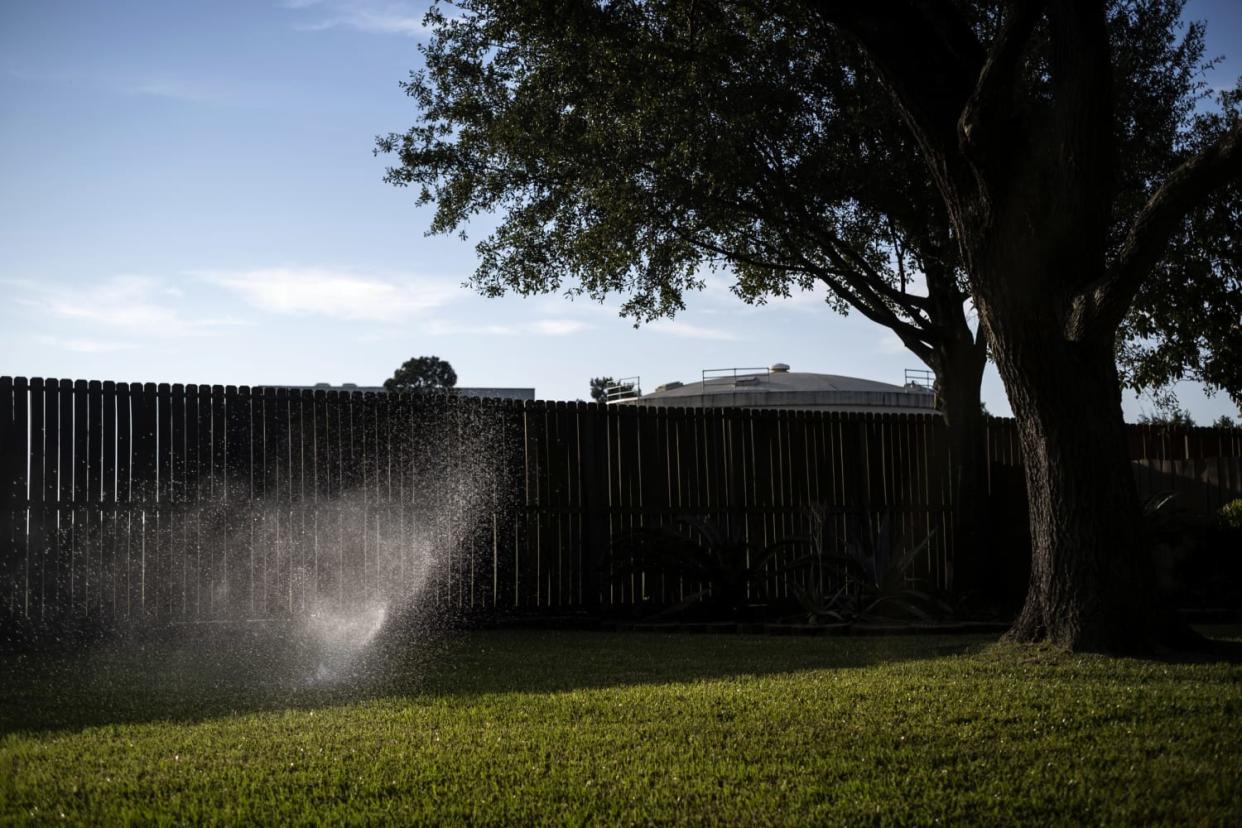
"So it's changing, but the reason they're attracted is the same reason everybody else is attracted to Prestonwood," Swisher said. "It's that same sense of community that drew us here."
But he worries that the sense of community might be starting to slip away, this year especially. Swisher has lived through nine presidential elections in Prestonwood Forest.
This one seems different.
"This year in particular has gotten very personal," he said.
This summer, after campaign signs started popping up in neighbors' yards, word spread that some Trump signs had disappeared. A couple of residents alleged foul play by their left-leaning neighbors, sparking another fight on the neighborhood Facebook group.
In the same subdivision where neighbors work together every winter to coordinate holiday decorations, many now feel they've got to choose a side.
"Personally I think this is all because of the Democrats," Swisher said. "It's been nothing but trying to get Trump for the past four years. There's no thought about what issues need to be addressed. It's just 'get rid of this guy.' So it becomes the name-calling and personal."
In his 40 years in Prestonwood, Swisher has never put a campaign sign in his yard. But he came close to putting one up this year.
It would have been for Trump, he said.
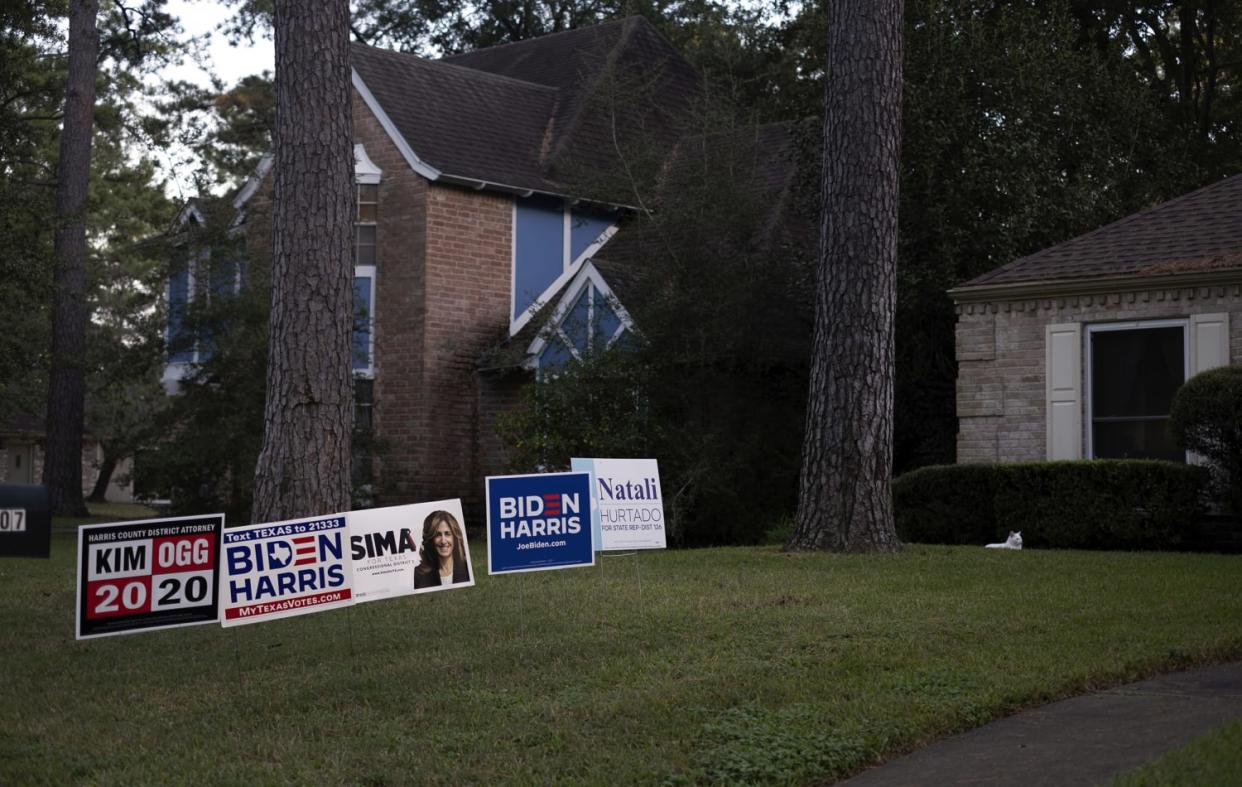
'It's absolutely racial'
Tony and Ayo Jones, a Black couple, moved to Prestonwood Forest with two young children in the summer of 2017 after falling in love with their new home's floor plan and convenient location.
They'd barely gotten settled when, two months later, Hurricane Harvey dumped more than 50 inches of rain on the neighborhood, causing the worst flooding in its history. Tony and Ayo sheltered in the attic with their children as water began rising inside their house. Once it was almost knee-deep on the first floor, they decided they needed to evacuate.
It was 11 p.m. and pouring rain as they waded into the darkened neighborhood with their kids, 2 and 8 at the time, joined by Ayo's father and Tony's brother, who'd come to shelter with them. Tony, 50, pushed the 8-year-old and Ayo's elderly father on an air mattress through waist-deep water. Ayo, 44, carried her toddler on her back, trying to shield him from the rain.
They walked until they reached the first house on higher ground. But when Tony rang the doorbell, he noticed someone peek out a window and then quickly turn off the lights.
"I was like, shoot," Ayo said. "It's because they saw two 'big Black guys' standing at the door."
At the next house, Tony and his brother stayed back at the street and let Ayo do the knocking. This time a young white couple answered, but they said they couldn't help. Ayo pleaded with them to at least let her family shelter in their garage to get out of the rain long enough to figure out a plan. The couple shook their heads and closed the door, Ayo said.
Finally, at the third house, an elderly white man answered. He and his wife quickly invited them inside and made hot cocoa for the kids. They put fresh sheets on their guest bed and told the Joneses they could stay with them as long as they needed.
That story came to symbolize the duality of their life in Prestonwood Forest, Ayo said. It's the kind of community where some neighbors will generously welcome strangers off the street, regardless of race, and treat them like family.
"But the only reason that happened," Ayo said, "is because two other people went to their doors and saw us in the rain, in the midst of a literal crisis with babies, and said, 'Sorry, we can't help you.'
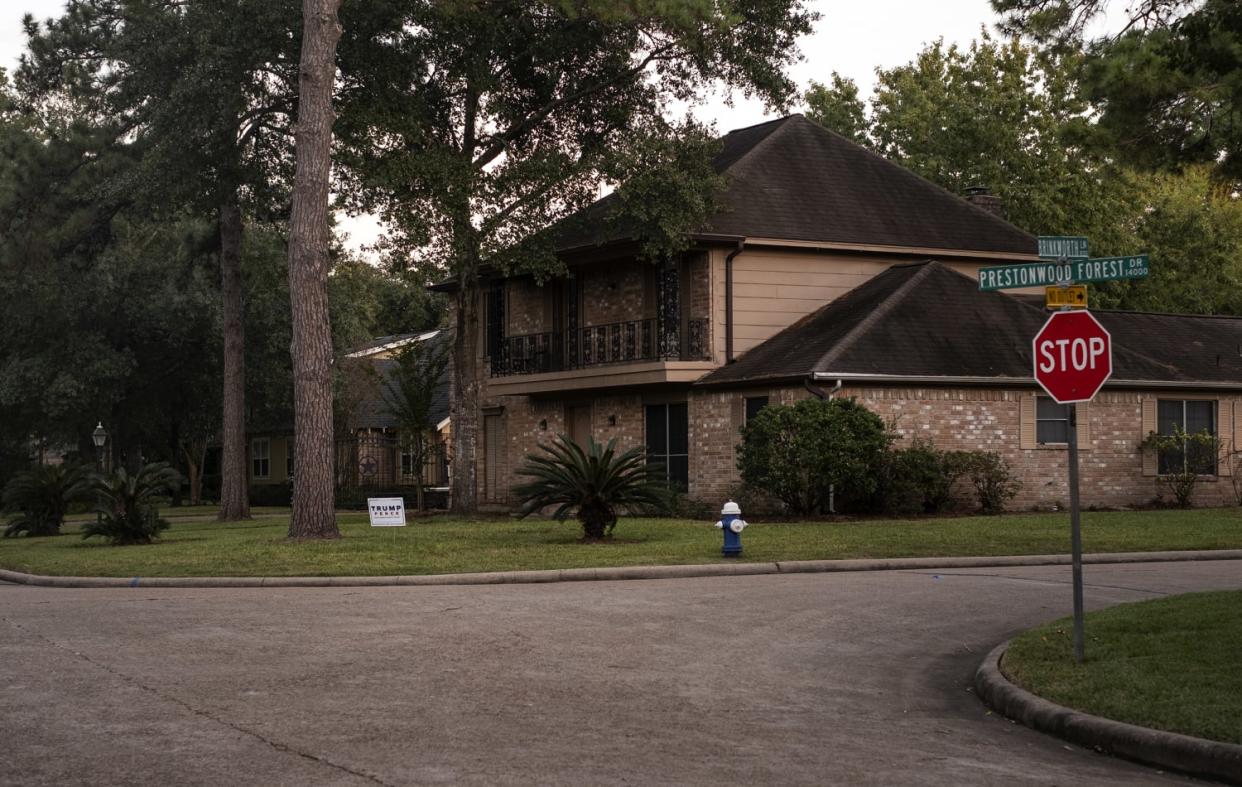
More kindness came in the aftermath of the storm, when other neighbors showed up with food and to help them gut drywall from their flood-damaged house.
But Tony, a former police officer and contractor, and Ayo, an instructional specialist at an area school division, still didn't feel completely welcome in Prestonwood. Some older white residents gave Tony long stares when they saw him walking in the neighborhood, he said, especially when he was without the kids. And one neighbor took a picture of Ayo in her car and posted her license plate on Facebook, accusing her of recklessly cutting through a residential street, seemingly unaware that she lived there.
And so, when Tony saw a comment on the neighborhood Facebook group this summer claiming that Prestonwood Forest was becoming "the 'hood," he took it personally. The comment wasn't just about the stabbing at a nearby apartment complex, he said. He felt like it was about him and his family and others who look like them.
He can't remember whether it was in response to that post or to another, in which a white Prestonwood resident referred to teenagers who'd shoplifted from a nearby grocery store as "thugs," but he recalled typing a sarcastic response that he knew would trigger a fight.
"I said, 'The white trash left the door open, and now the 'hood's moving in,'" Tony said. "And I think that blew it up. But I was trying to let her know, 'Hey, you know, this is what your comment sounds like.'"
As residents criticized her husband's comment, Ayo and a couple others jumped in to defend him.
"People need to know when you hear that type of language, either from your neighbors or from the president, that's what that means," she said. "The 'hood is Black, and the suburbs are white. And we have to protect the suburbs from the 'hood. It's absolutely racial."

'I don't want to argue'
Bethany Webster and a friend created the Prestonwood Forest Neighbors & Friends Facebook group just a few days after Hurricane Harvey to connect residents whose homes had flooded with those eager to help.
Afterward, the group became a place to post about missing pets or to let parents know how to sign kids up for the neighborhood swim team. Webster, a 36-year-old mother of three, had moved into Prestonwood with her husband a few years earlier, hoping it would be a friendly community for her children to grow up. The initial kindness of people posting on the Facebook group showed her that's exactly what it was.
But over time, it transformed into something else.
"So I feel like we've seen the best and the worst of the people in our community through the page," Webster said. "Because I see people being so generous and compassionate. And I've also seen the flip side of that coin, which is, you know, trying to tear each other down."
The posts have grown more partisan and more personal as the election draws closer, Webster said. Meanwhile, the coronavirus pandemic has forced people to spend more time inside and online, where they're often more willing to spar with neighbors than they would be in person.
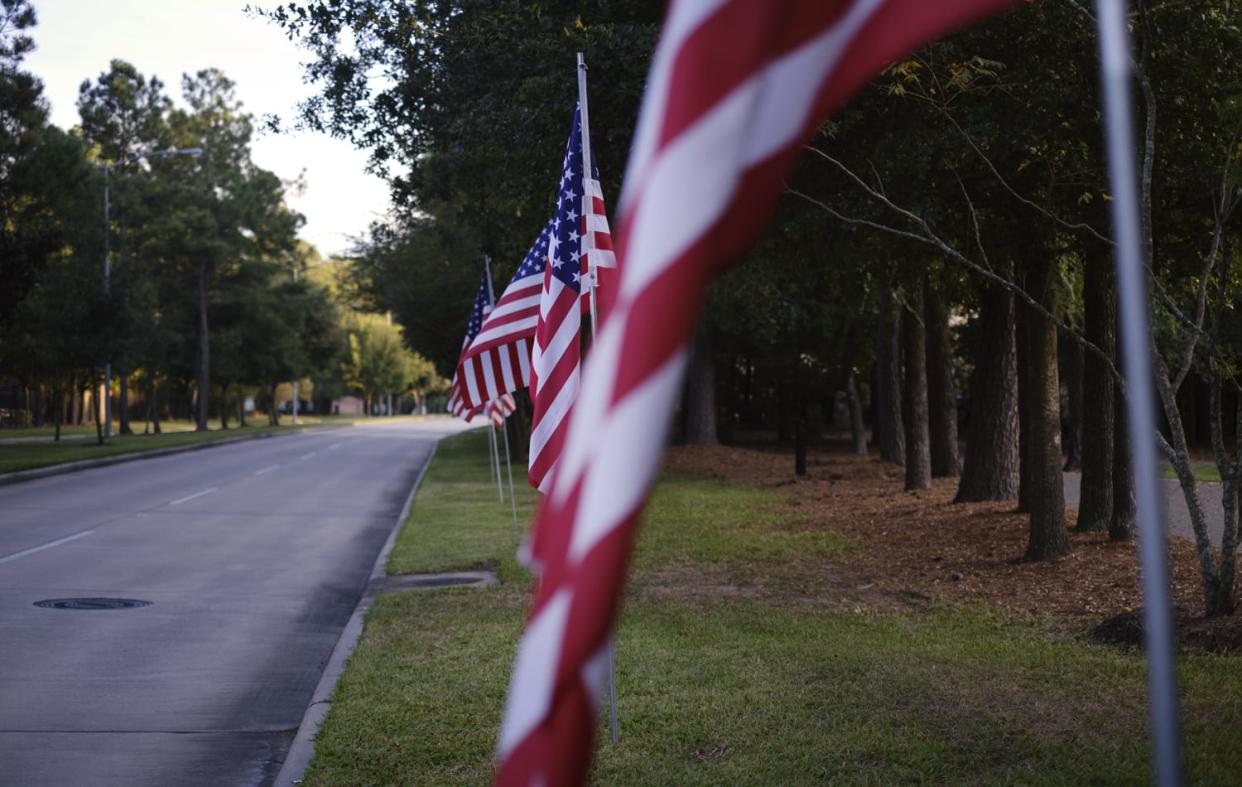
If comments get too heated, Webster and the group's other administrator sometimes jump in to shut things down.
Webster, who is white, wishes people didn't take politics so personally. She describes herself as "conservative leaning" and passionate about a few specific issues, but she generally avoids talking about politics. She and her husband don't have any campaign signs in their yard, and she declined to tell a reporter how she plans to vote in the presidential race.
"Honestly, it's become too personal," she said of her neighbors' reactions.
After the election is over, she hopes the dialogue on Facebook will soften and get back to more constructive topics. Like making plans to decorate for this year's Night of Lights.
"I don't want to argue with anybody," Webster said. "I don't want to have a dispute. And I don't want to make a decision about who somebody is based on the sign in their yard."

'I'm not welcome here'
Polls show an unusually tight presidential race in Texas, with Trump leading Biden by less than 2 points in a state Republicans used to routinely win by double digits. As in other competitive states, Democratic leaders say the key to flipping Texas is winning new voters in its fast-growing and rapidly diversifying suburbs.
A recent poll showed Trump and Biden in a dead heat among suburban voters in Texas, tied at 49 percent.
But if Democrats are gaining ground in Prestonwood Forest, it isn't reflected in the campaign signs posted in people's yards. On a recent drive through the neighborhood, Trump signs outnumbered Biden signs by at least 10 to 1, although that doesn't account for the preferences of residents in the surrounding apartment complexes.
Linda Mattson, a 65-year-old white retiree, is one of the few Prestonwood residents with a Biden sign on her lawn. That's because she doesn't mind getting into arguments with her neighbors, she said. Mattson was one of the commenters who criticized the woman who said Prestonwood Forest was turning into "the 'hood."
"I think I told her, 'Excuse me, your racism is showing,'" Mattson said, laughing as she talked with a reporter on her front porch.
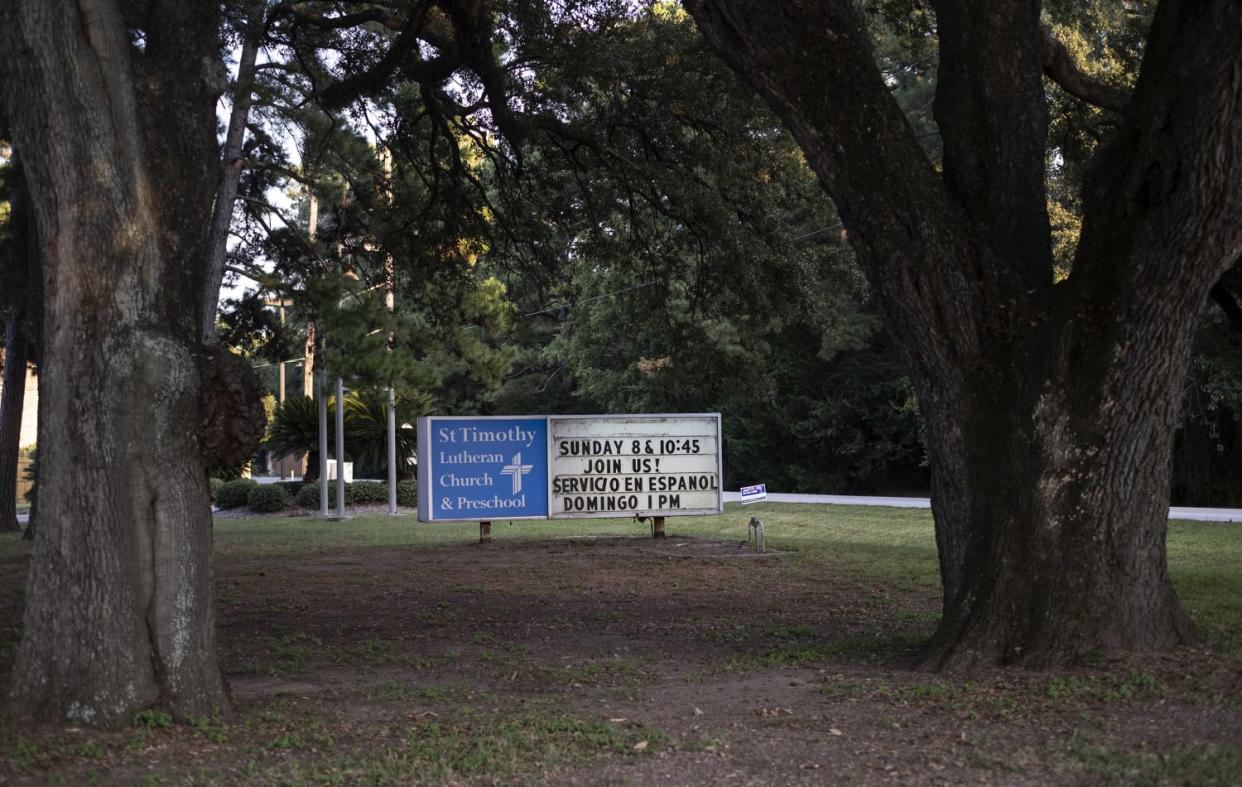
Mattson, who moved to Prestonwood Forest 25 years ago, said she is glad the neighborhood is growing more diverse. But she acknowledges that she and some of her neighbors have become more combative when it comes to politics.
She blames Trump and those who support him. She hasn't seen more crime in the neighborhood, she said, and indeed, monthly reports compiled by the county constable show few incidents of serious criminal activity in Prestonwood since 2015. Anyone who believes otherwise, Mattson said, is buying into the president's "fearmongering."
"I'm sorry, but when I see a Trump sign in somebody's yard, all I can think is how ignorant you must be to openly support someone like that," Mattson said.
Tony and Ayo Jones, the Black couple who moved in just before Harvey, had a more visceral reaction to the signs this summer.
They think about Trump's comments in 2017, when he said there were fine people on "both sides" after a violent clash between white supremacists and anti-racist protesters in Charlottesville, Virginia, before issuing a statement days later condemning white nationalists. To the Joneses, a Trump sign represents more than just a political statement.
"I see that and I think: 'I'm not welcome here. You are against me,'" Ayo said, emphasizing that she never felt that way about previous presidential candidates. "And so it's hard not to take it personally. It's not just politics."
The Trump signs and their neighbors' Facebook comments — combined with broader experiences of discrimination as Black people in America — made Tony and Ayo feel so unwelcome, they did something extraordinary last month: They packed up and moved to Ghana, in West Africa, where Ayo's father was born, becoming part of a movement of Black Americans relocating to African countries to escape systemic racism.
"It was time," Tony said days after settling in their new home. "We're loving it."
But the Joneses haven't given up on their suburban home. They still own their house in Prestonwood Forest. And last month, they requested mail-in ballots.
They plan to vote absentee.
